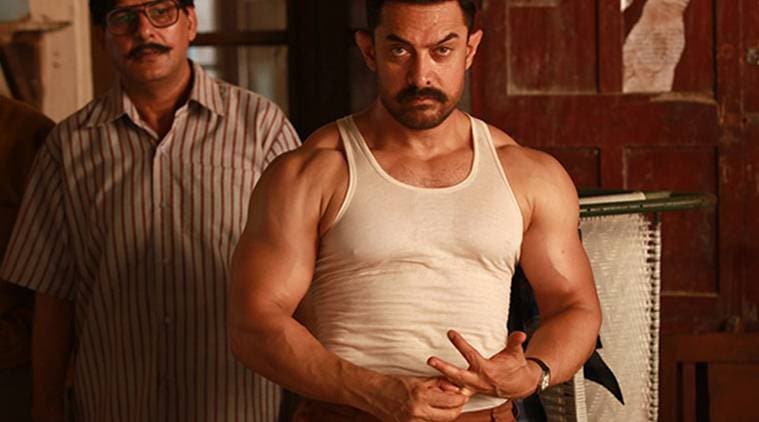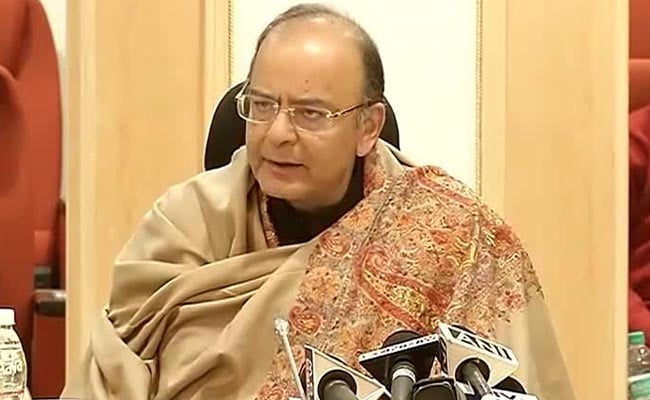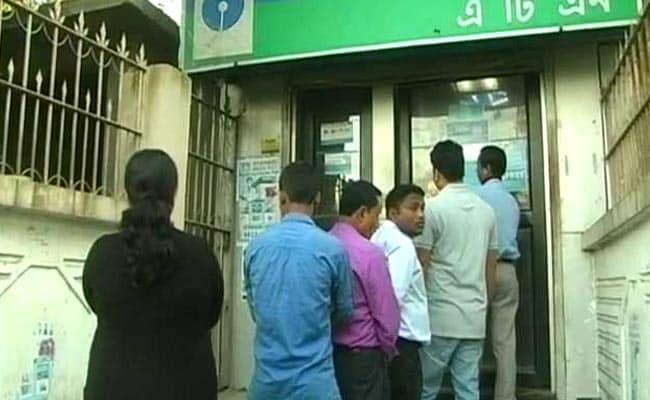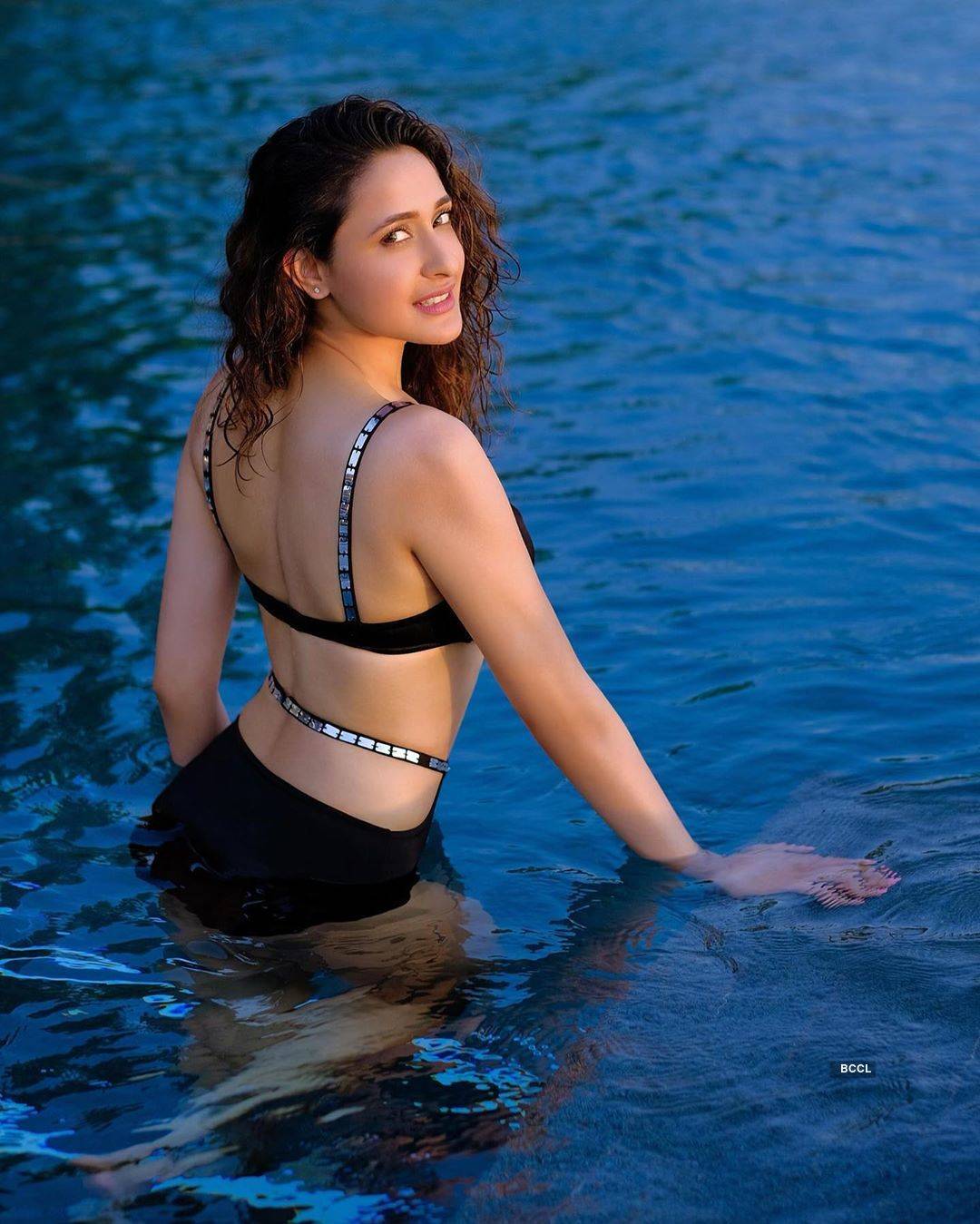Karan Johar's An Unsuitable Boy
— co-authored by Poonam Saxena and published by Penguin Books India —
is probably the most anticipated celebrity autobiography this year.
And not for a moment, through its 200+ pages does it disappoint.
In
An Unsuitable Boy, Karan traces his childhood
and growing up years, initiation into the film industry, experiences
with moviemaking and helming Dharma Productions, equations with friends
like Shah Rukh Khan, Aditya Chopra and Kajol, and of course, the subject
of his sexuality. He also talks about the success of
Koffee With Karan, the controversial AIB Roast before recapping how the film industry has changed over the years.
That's a lot of detail, packed into a (relatively) slim volume.
There is a sense as you rush through these pages (and you
will rush, because you'll want to know what he's about to say next!)
that each is stuffed full with revelations. There's little that is
redundant or uninteresting, and the feeling is one of Karan narrating
his life's events to you, the reader. The tone is direct, personal and
conversational — if you're looking for a work of literary art, you'll be
disappointed. What the book delivers instead, is solid storytelling.
Like Johar's films, it is also extravagantly emotional.
An Unsuitable Boy is not a book about Bollywood —
although it is peopled by the Hindi film industry's denizens. Yes,
Bollywood provides the background against which these stories and
personal interactions unfold; but
Unsuitable Boy is really a
coming-of-age story. Of a lonely-but-loved boy who grappled with
personal inadequacies and ultimately triumphed over them once he found
his creative direction.

'Coming
clean is my dynamic,' writes Karan Johar in his autobiography 'An
Unsuitable Boy'. And that's just what he proceeds to do in its 200+
pages.
The early years
At the start of this narrative, we are introduced Karan
Johar, the only child of Yash and Hiroo Johar; Johar senior ran an
export firm in addition to being a film producer — the profits from the
former helping tide over the losses incurred in the latter capacity. As
much as his father pampered him, his mother was a disciplinarian. We get
a sense of a childhood that would have been near-idyllic, except for
one thing — Karan was a deeply lonely child. Early on, he talks of being
taunted for being effeminate by strangers or casual acquaintances; how
being described as "pansy" had the power to wound him deeply (in later
years, he would take voice modulation lessons to develop a baritone, and
learn to control his hand movements that had been pointed out to him as
'too feminine'). Reserved and unable to mix socially with others of his
peer group, he withdrew into himself, seeking solace in food. But if
food comforted, it also added another layer of shame when it led to
major weight gain.
Events reached a head when Karan was sent away to boarding
school; here, he was miserable and homesick until a boisterous Twinkle
Khanna convinced him to run away. There's a humiliating moment when the
runaway is caught by the school guards and brought back and admonished
in the morning assembly the principal in front of all the students. More
heartbreak awaits: his mother is crushed when Karan is brought back
home — so many of her hopes for her only child are bound up in his
receiving a quality education. That evening, she sits him down for a
serious conversation: Does he want to be mediocre for the rest of his
life?
Back at his old day school, his mother's words still on his
mind, Karan's life begins to change. It is partly by chance — he gets
involved in a club at school, is picked for an inter-school recitation
contest (where seated next to him is Aditya Chopra, a fellow contender)
and discovers that he is really, really good at elocution. When he wins
the big prize, it cements his confidence and thus effects a dramatic
life transformation.
Act II: Friendship with Aditya Chopra
Act II of
Unsuitable Boy has its roots in a
friendship — that between Karan and Aditya Chopra. Karan recounts how he
— a diehard Hindi movie buff — drew closer to Adi and Anil Thadani (the
distributor, now married to Raveena Tandon) during his college days. Of
course, he had always known Adi — his parents Yash and Pam Chopra were
friends with the Johars. But a shared love for Hindi movies drew the
younger generation closer during their college years. Karan recounts how
he, Adi and Anil became inseparable, talking movies through all hours
of the day. And when Karan was about to take on the mantle of his
father's business, it was Adi who convinced him to assist with the
making of
Diwale Dulhaniya Le Jayenge. As with the elocution contest during his boyhood, the making of
DDLJ
proved to be the turning point in Karan's life as a young man. From
then, there was no looking back. His friendships with Shah Rukh Khan and
Gauri Khan date back to this time, (his friendship with Kajol went back
longer) and this would prove to be his 'training ground' for a career
in films. It laid the groundwork for
Kuch Kuch Hota Hai, and Karan's career as a filmmaker.
Filmmaking career, and death of Yash Johar
The next few years were a spiral of highs: Karan made
Kuch Kuch Hota Hai, followed by
Kabhi Khushi Kabhie Gham,
and his narrations of how these films came about hold much of
interest to the Bollywood fan. For instance, he shares an anecdote about
how Salman Khan agreed to come on board for his extended cameo in
KKHH, a part that definitely placed him as second fiddle to Shah Rukh. But it is in his recounting of the making of
KKKG, that Karan reveals the insecurities he faced as a filmmaker: as he went about with his multi-starrer,
Lagaan released to great acclaim and later earned an Oscar nod. That same year Farhan Akhtar's
Dil Chahta Hai
also came to the theatres, and Karan writes of how he was struck by how
genuinely cool it was. Karan admits to feeling threatened, like his own
work would not match up, and wanting to make something that had the
same authentically cool feel of
Dil Chahta Hai. The result was
Kal Ho Na Ho, which Karan scripted, and asked Nikhil Advani to direct.
KHNH led to a falling out with Kareena Kapoor (read about it
here)
and on-set tensions with Nikhil, but the worst thing to take place
during this time was that Yash Johar was diagnosed with cancer. The
Johars went through the rigmarole of radiation and chemotherapy; but by
June of 2004, Karan's father succumbed to the illness. The loss was
devastating, one Karan didn't recover from for a while, and it's one of
the most poignant sections of
Unsuitable Boy.
Taking charge of Dharma and later years
Karan has written that he'd been happy while his father was
alive, to deal with only the creative aspect of filmmaking. But after
Yash Johar passed away, he had to get to grips with the minutiae of the
business side as well. In this, he was helped by Apoorva Mehta, his
closest friend from school, who quit his job at YRF's London division to
take charge at Dharma. Karan writes of how they've grown to be the
production house they are today after a slow and steady process of
learning from their success and failures. As Dharma grows, so does Karan
Johar, in stature, in confidence, more sure of his place in the world.
Personal issues and equations
What sets
An Unsuitable Boy apart is its often blistering honesty: Karan turns his gaze on subjects like his sexuality (read what he has to say about it,
here)
his close friendship with Shah Rukh Khan (there's an entire chapter
dedicated to SRK, although he does make appearances in other parts of
the narrative as well)and the acrimonious breakdown of his relationship
with Kajol (click
here
to see pages from the book). There's something disarming about the
openness — you can't possibly pick flaws in someone who so courageously
highlights them himself. Karan also writes of his battle with
depression, and the process of being at peace with himself and his life
choices.
Not that they're comparable, but merely by virtue of being
celebrity autobiographies and having released at the same time, Rishi
Kapoor's
Khullam Khulla: Uncensored and
Karan's An Unsuitable Boy, are bound to be held up against each other.
In
Firstpost's review of Khullam Khulla, we wrote: "Having read
Khullam Khulla in its entirety, and just the prologue to
Unsuitable Boy,
one can safely say that perhaps it is Johar’s book that is probably
more deserving of the ‘uncensored’ tag. It isn't that Rishi Kapoor’s
book lacks in frankness; he's held forth in detail about his famous
family, his equations with his contemporaries, the highs and lows of his
film career, the moviemaking business, and a couple of scandals. But
being forthright or frank isn't quite the same as baring your soul. And
Khullam Khulla, except in some instances, doesn't seem like a baring of Rishi Kapoor’s soul."
Khullam Khulla is perhaps the better-written and better edited book. But
An Unsuitable Boy
is most definitely a baring of Karan Johar's soul. It's has everything
that one would look for in a celebrity autobiography: gossip, insight,
and an insider's view into the fascinating world of Bollywood.





 Jupiter which is the biggest in the solar system, appears as a deep red
orb surrounded by layers of pale yellow, orange and white. (Source:
NASA)
Jupiter which is the biggest in the solar system, appears as a deep red
orb surrounded by layers of pale yellow, orange and white. (Source:
NASA)
 Dangal box office collection day 24: Aamir Khan film collected Rs 4.06 cr and 4.24 cr on Saturday and Sunday respectively.
Dangal box office collection day 24: Aamir Khan film collected Rs 4.06 cr and 4.24 cr on Saturday and Sunday respectively.












 Zaira Wasim’s defence came from Geeta Phogat whom the actor essayed in Dangal.
Zaira Wasim’s defence came from Geeta Phogat whom the actor essayed in Dangal.






